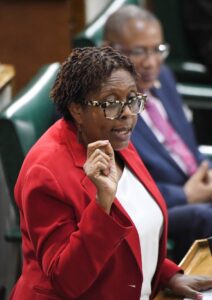
Strand Consult urges Caribbean policymakers to close $13-billion broadband investment gap
A new report from global research firm Strand Consult is calling for urgent action from Caribbean policymakers to close a broadband investment gap of US$8 billion to US$13 billion, which threatens to derail the region’s digital future.
The report, titled: ‘Gigabit Caribbean: Closing the Investment Gap in Fixed and Mobile Networks’, argues that unless major reforms are enacted, the Caribbean risks being left behind as the digital world continues to evolve.
At the heart of the issue lies Big Tech’s unchecked dominance. It notes that tech giants such as Google, Meta, and Netflix are generating billions in revenue from the Caribbean each year, yet contributing little to the infrastructure that supports their business.
The report has termed the imbalance as “digital colonialism”, and echoes mounting frustration from Caribbean telecoms like Digicel and Flow which typically reinvests nearly 18 per cent of their revenue into network maintenance in addition to paying regulatory fees, taxes, and salaries. Meanwhile, major tech companies are said to extract US$11.5 billion annually from the region without paying into the system.
Strand Consult’s report underscores the need for new market-driven cost recovery models. It stresses that rather than relying on subsidies or ineffective universal service funds, policymakers must engage in “good-faith negotiations” with Big Tech, ensuring that the largest users of regional networks pay a fair share of the infrastructure costs they generate.
“The Caribbean represents a salient example of Big Tech’s free riding in which it can extract some US$12 billion annually without paying any tax, registration, salary, or usage fee. Big Tech has short arms and deep pockets; Caribbean policymakers should take action to secure the digital future of the region,” the report warns.
It added that the financial strain on local telecom providers is mounting. The costs of handling video-heavy Internet traffic — fuelled by global streaming services — are growing faster than revenue. That’s compounded by rising operational costs, which are hindering the telecoms’ ability to expand and maintain networks. The report estimates that 15 million people across the Caribbean still lack access to even basic Internet services, which only deepens the region’s digital divide.
In response, Strand Consult urges a shift from outdated business models, which were not designed to handle the demands of modern data usage. It calls for an equitable system where Big Tech players contribute proportionally to the costs of broadband infrastructure.
“Without equitable cost-sharing,” the report states, “telecom operators will continue to struggle to fund the infrastructure that is critical to the region’s digital future.”
This isn’t the first time the Caribbean has sought a solution. In 2015, Digicel, led by then chairman Denis O’Brien, took a bold step by blocking advertisements from Google and Facebook on its networks, a move that brought attention to the growing frustration with Big Tech’s reliance on local infrastructure without financial contribution. However, the action was short-lived due to regulatory pushback, including concerns over potential violations of net neutrality.
More recently, telecom operators have shifted from unilateral action to collaborative dialogue. In 2023, the Caribbean Telecommunications Union (CTU) facilitated high-level discussions between regional telecom providers and Big Tech, including Google, Meta, and Netflix. The aim was to explore solutions to offset the rising operational costs driven by over-the-top (OTT) traffic.
The report notes that telecom operators in Jamaica and Trinidad and Tobago, the region’s largest markets, face the heaviest costs, spending between $34 million and $73 million annually to accommodate the growing data demands. These costs, combined with slim profit margins, make it increasingly difficult for local providers to fund the necessary infrastructure improvements that would ensure equitable digital access across the Caribbean, the report states.
Telecom operators like Digicel and Flow have long stressed the importance of equitable cost-sharing, warning that without it, their ability to maintain and expand broadband services will be compromised.
— Karena Bennett























